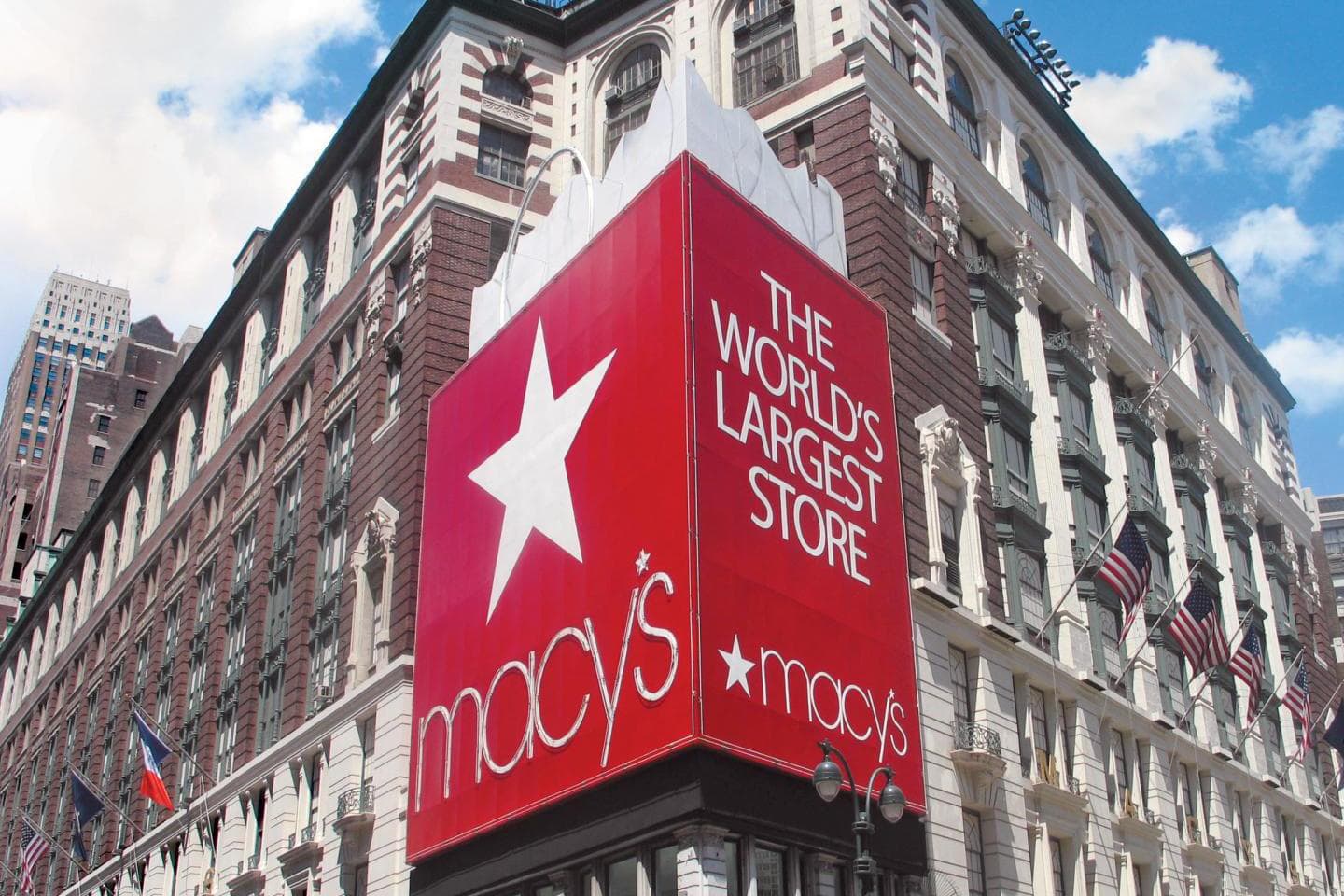Retailer Beats Wall Street Expectations Despite Challenging Quarter
Macy’s Inc. experienced a decline in both sales and net income in the first quarter, impacted by inflation and a shift in consumer spending towards travel and dining. The retailer, which is closing 150 stores by 2026, reported net income of $62 million for the quarter ended May 4, down from $155 million in the same period last year.
Net sales fell 2.7 percent to $4.85 billion from $4.98 billion, and operating income dropped to $125 million from $244 million. Comparable sales were down 1.2 percent on an owned basis and 0.3 percent on an owned-plus-licensed-plus-marketplace basis.
Despite the declines, Macy’s outperformed Wall Street expectations, leading to a 3.5 percent increase in pre-market stock trading to $19.77. Macy’s also noted a 3.4 percent sales comp gain in 50 pilot stores where it implemented staff changes, merchandise upgrades, and enhanced visuals.
In February, Macy’s unveiled its “Bold New Chapter” strategy, which involves closing around 150 department stores by 2026 and investing in 350 higher-performing locations, referred to as “go-forward” stores. The strategy includes expanding the luxury segment and increasing the number of small-format stores, including Bloomie’s, Bloomingdale’s outlets, and Backstage units. The retailer plans to open 30 small-format units over the next two years, in addition to the 12 currently operating.

“We are encouraged by our customers’ response to our Bold New Chapter strategy resulting in sales near the high end of our outlook. Our teams executed with discipline and efficiency, which contributed to first-quarter earnings that exceeded our expectations,” said Tony Spring, chairman and CEO of Macy’s Inc. “Our investments in product, presentation and experience are gaining traction and reinforce our belief that longer-term, Macy’s Inc. can return to sustainable, profitable growth.”
In April, Macy’s appointed Richard Clark and Richard L. Markee as new independent directors, ending a proxy fight with activist investor Arkhouse Management Co. Arkhouse had sought to overhaul Macy’s board but withdrew its push after the appointments. However, Arkhouse and Brigade Capital Management continue to pursue a takeover of Macy’s, proposing a buyout at $24 a share, or $6.6 billion, after an earlier bid was rejected.
Macy’s reported that in its “go-forward” business, comparable sales, including stores and digital, were down 0.9 percent on an owned basis and up 0.1 percent on an owned-plus-licensed-plus-marketplace basis. Macy’s division saw comparable sales down 1.6 percent on an owned basis and down 0.4 percent on an owned-plus-licensed-plus-marketplace basis, while “go-forward” locations saw a 0.1 percent increase on both measures.
Bloomingdale’s comparable sales increased 0.8 percent on an owned basis and 0.3 percent on an owned-plus-licensed-plus-marketplace basis, and Bluemercury’s comparable sales rose 4.3 percent on an owned basis.
Macy’s raised its guidance slightly for 2024, forecasting sales of $22.3 billion to $22.9 billion, up from the previous guidance of $22.2 billion to $22.9 billion. Adjusted earnings per share are now expected to be $2.55 to $2.90, up from the previous $2.45 to $2.85.
